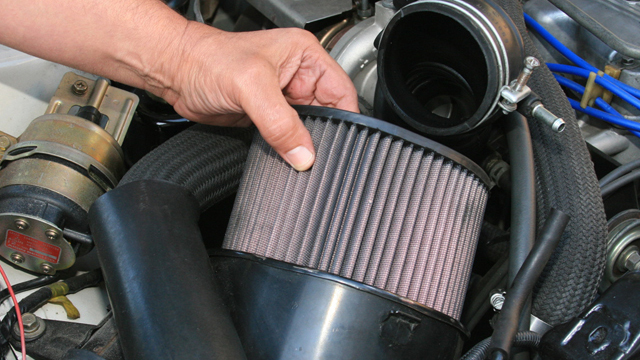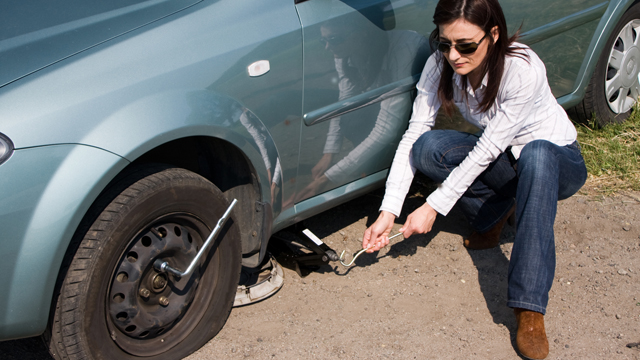
Knowledge is power, they say. When you’re the owner of a shiny new car, there is no doubt that you want to do all it takes to maintain your machine and its value. However, your enthusiasm might be doing more harm than good. You might have the best intentions in mind, but you can still waste money on a car, if you are not paying attention to the following:
1. Not Replacing Air Filters and Wiper Blades Yourself

Remember the last time you walked into a car dealership expecting to pay a few bucks for an air filter change or wiper blade replacement? Instead, you probably walked off with a bill that felt excessive for the amount of time required. Taking things into your own hands can save you a few pretty pennies without much effort on your part. In reality, changing your car’s air filter is a simple process that requires only minutes to complete – it’s not worth paying someone else to do it.
Wiper blades are a similar topic. Replacement blades can be bought online or at discount auto-part stores and installed within five minutes. In most cases, the old blades simply pop off, allowing you to easily snap in new ones. If you’re pressed for money, try simply cleaning the old wiper blades with a paper towel and some rubbing alcohol.
2. Replacing Tires When You Should Be Replacing Shocks

When cruising around in your new car, do you find that your tires are wearing unevenly or peculiarly? Your instinct might be to buy new tires, but this might simply mask the problem until it occurs again. It is more likely that your shocks or struts could be worn out, requiring replacement shocks. This might be harder on the wallet, but in the long run safety has no price.
3. Not Keeping All Records

Whenever you buy a new car, remember to keep all documentation in a file carefully. This includes receipts, service history and records of all work done on the car. Having an organized and complete history of your car greatly increases its resale value, as someone can better judge how the car has been treated and whether it has been maintained regularly, as opposed to being in the dark and taking their best guess.
4. Not Changing the Fuel Filter

If you aren’t keeping an eye on your fuel filter, think again. Changing your car’s fuel filter regularly can significantly impact the performance and lifespan of your engine. It does not require a lot of know-how, remaining a fairly straightforward procedure that takes about half an hour. If you do not already have a new filter and washers, it will cost around $20 to complete this on your own. Note that with most modern cars, the fuel filter might actually be built into the fuel tank and is a job best suited to your mechanic.
5. Not Keeping Your Tires Properly Inflated

Keeping your tires inflated to the correct pressures is one of the simplest things you can do to lower costs and remain safe on the road. You can improve your gas mileage by up to 3.3% by keeping your tires inflated to the proper pressure. Still not convinced? Keeping your tires under-inflated can lower gas mileage by 0.3% for every 1 psi drop in pressure of all four tires, which can add up in the long run and over several trips.
Properly inflated tires also have less wear and tear and hence last longer, making it a no-brainer to keep an eye on those pressure levels monthly, especially before long trips.
6. Not Knowing How to Change a Tire

Changing your car’s tire might look troublesome in the movies, but in actuality it’s a very straightforward exercise and good skill to have for those unforeseen breakdowns. Keep a spare wheel, a jack and a nut wrench handy in your trunk and ensure you know how to properly change your tire.
7. Using Premium Gas Instead of Regular

Cars that are designed for regular fuel get no benefit from using premium fuel, hurting nothing but your wallet. If you are driving a higher performance vehicle such as the new Audi Q5 or Chevrolet Corvette, it is recommended to use premium fuel, but if you confirm via the owner’s manual that your car doesn’t require it, switch to regular fuel.
8. 3,000-Mile Oil Changes

While you might think you’re keeping your car in a better condition by changing the oil proactively, keep in mind that manufacturers typically suggest 5,000 miles or even longer intervals between oil changes. If you drive aggressively, live in a cold climate and have a high-performance car, you could benefit from more frequent oil changes, but for most others it’s an overkill. Try and stick to oil changes twice a year.
So there you have it. Keep in mind these 8 mistakes, making sure your new car is burning just gas and not your money too.






